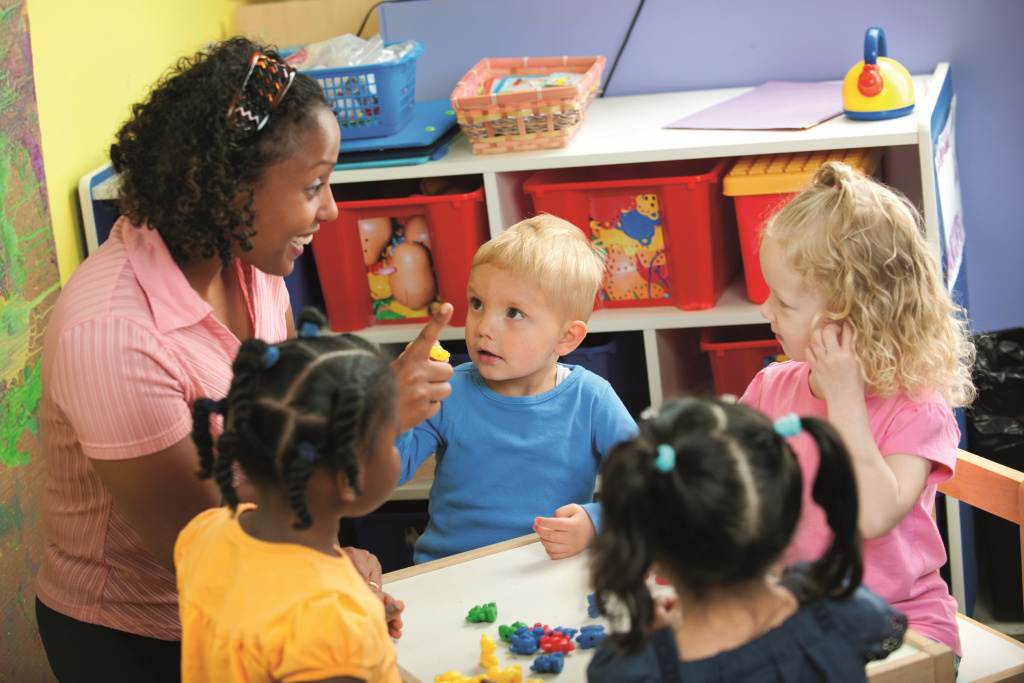
All registered childcare settings in England – nurseries, childminders, nursery schools; pre-schools and childcare on domestic premises - are expected to deliver the Early Years Foundation Stage framework with a clear focus on supporting children’s numeracy and enjoyment of maths from a very early age. The word in enjoyment is key to the approach early years takes in supporting our youngest children to have fun whilst growing their understanding and confidence in numbers.
The EYFS states “mathematics involves providing children with opportunities to develop and improve their skills in counting, understanding and using numbers, calculating simple addition and subtraction problems and to describe shapes, spaces and measures”1
The EYFS is not as prescriptive a curriculum as the national curriculum. Its focus is on setting out the developmental stages a child should achieve over the first five years of their life and how an early years practitioner can best support that development. There is a strong focus on practitioners knowing each child in their care – through observation, assessment and partnership with their parents/carer – and using this knowledge to tailor the learning opportunities to that child, building on the activities they like to do, planning next steps and regularly observing progress so it can be built upon.
Numeracy and literacy are core components of the EYFS but valued equally with other physical, social and emotional areas of development. This demands an integrated and personalised approach to planning a child’s development, building on what they like to do and ensuring that every activity is an opportunity to explore numbers as well as many other things. Anyone who knows a two year old will understand how critical it is to support them to learn and develop in their own style. If Lucy is a constructor and likes building ‘stuff’ and knocking it down; then the early years practitioner will ensure through this activity Lucy also gets to explore numbers; ideally colours, size and shape too – all while she is still having fun building her tower and knocking it down again.
Numeracy in the early years is so much more than just counting and number recognition, something that can surprise many parents as well as some new to the profession. It’s also about shape, pattern, space, measurements and solving real-life problems. All practitioners know that babies are competent learners from birth. At the heart of the EYFS is the assumption that pre-school early education should enable children to explore a wide range of concepts to support them to gain the foundations they need to be ready to learn when they start school.
One of the key challenges facing the early years sector is that many of the practitioners who enter the profession can do so with a lack of confidence in their own numeracy. Indeed the sector has recently been in a long and heated debate with government on the relative importance of practitioner literacy and numeracy in delivering high quality learning to children. Until April, the Department for Education had stated that no practitioner could count in the child/adult ratio in a group setting unless they were qualified to Level 3 and held Maths and English GCSE grade C or above. The focus behind this requirement was a wish to ensure high quality practitioners, confident in their literacy and numeracy, were teaching our youngest children. This was something the early years sector as a whole had supported when Professor Cathy Nutbrown2 recommended this as part of her wider proposals on workforce reform. The challenge however was in how then Ministers interpreted this requirement as being narrowly measured by only a GCSE grade C. This contradicted what the sector had asked for – GCSEs and/or equivalent functional skills qualifications. As a result, the decision has negatively impacted on quality, with less and less young people choosing to undertake a career in childcare because they did not have the required GCSE grades and a number of well qualified Level 2 practitioners unable to progress to Level 3 because – as working adults – they would have to go back to study for their GCSEs. In summary, the attainment gap that so many people in early years are working to address, was coming full circle back to prevent many settings from being able to employ the staff they need to deliver high quality care!